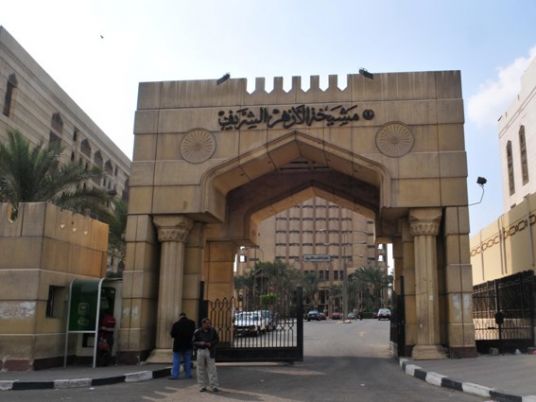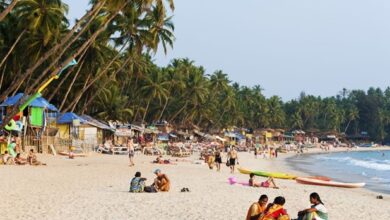On the coastline extending between the cities of Taba and Nuweiba, at the far east of Egypt’s Sinai Peninsula, there is little activity. A declining tourism industry is behind this dormancy, which today affects the livelihoods of many.
This 70km stretch along the coast has been home to a special genre of tourism in South Sinai, which has flourished ever since Egypt regained its sovereignty over the peninsula after a series of wars with neighboring Israel.
In the south, Sharm el-Sheikh witnessed an explosion in urban development geared toward attracting tourists, while Dahab become a destination for scuba divers, and St. Catherine retained its status as hub for eco-tourism and religious tourism. Nuweiba and Taba, meanwhile became attractions for bohemian backpackers who want nothing more from a holiday than a bamboo hut facing the wide open Red Sea.
Those backpackers, however, have been repelled by a series of terrorist attacks and with the proximity of the Peninsula to the Gaza Strip which witnessed an Israeli offensive early this year. For those who remain, the price has been high.
“About six years ago, this place used to host more than 250 tourists at high season,” says Sheikh Eshesh, a Bedouin community leader from the Muzaina tribe and owner of the Kumkum camp which lies on the coastline. Today, around the same time of year, a glance at the huts, then the beach, then the reception area of the Kumkum camp, reveals how emptiness. Eshesh says he has only five tourists this weekend.
“The area here has been highly dependant on Israeli tourism and we’re paying for this now. It is time to attract Egyptian tourists,” adds Eshesh, who estimates the Israeli share in local tourist activities to be 85 percent. But that was only the case before a string of attacks hit South Sinai.
In 2004, three bomb attacks targeted the Hilton Taba Hotel and the tourist camp located in the Ras Shetan area on coast, both of which are popular Israeli destinations. Thirty-four people were killed, including 12 Israelis, and the attacks were attributed to Palestinians who infiltrated Sinai, after a failure to perpetrate attacks inside Israel. The busier tourism hub, Sharm el-Sheikh, was attacked in 2005 and 88 people were killed, one of the deadliest terrorist attacks in the country’s history. In 2006, Dahab was hit, and 23 people died.
Potential tourists and inhabitants of the area alike have been wondering when and where the next attack will happen.
“Our main economy here in South Sinai is based on raising animals and on Israeli tourism, both of which are hit,” says Eshesh. “The drought has made sheep-herding difficult and forced Bedouins to depend on garbage to feed their animals, which is quite unhealthy. Animals have not been producing quality meat and dairy products like before.”
Tourism has not been paying off either. Not only do camp owners like Eshesh stand to lose from the slump, but so does the area at large. Selim Sallam, a young Bedouin driver, recalls how, back in the busy days of tourism, he was never out of commission.
“Now, I spend hours scouting the area for tourists who need a ride and end up spending a lot of money on fuel with no return. So I go back home, with empty hands.” Seated on the floor of his living room, in a house located in one of Nuweiba’s villages, he glances at his wife and his few-month-old son with an expression that does not hide his perplexity about their future. “They keep saying the area is dangerous, and we end up paying the price.”
Similarly, a lot of the Bedouin workers in the tourist camps have been laid off as business is too slow to accommodate them.
In Israel, travel advisories from the foreign ministry continue to warn citizens against going to Sinai. “It’s a war of interests. The Israeli government wants to hurt the Egyptian economy and to encourage domestic tourism instead,” says Eshesh.
In order to move beyond the Israeli tourists to which the area has been accustomed but who have stopped coming, the area needs to be developed, according to Eshesh.
“The area needs to be cleaned up and the desert around it explored to find more attraction spots. The beaches need to be cleaned and a proper hospital needs to be established.”
Basic infrastructure has been missing, rendering business more difficult for the owners of the camps. A treated water tank containing ten liters costs LE120 and has to be transported from Nuweiba city to each camp on a daily basis. Access to main electricity lines is expensive, so camp owners resort to power generators which are not able to function 24 hours a day.
For a lot of Egyptians, the area remains unknown. “The area is not being marketed in Egypt. The media needs to give it attention,” Eshesh says. “Sinai needs to be among the country’s development priorities and its people need to feel that they are citizens of Egypt.”
But too much development could spoil area’s uniqueness, according to some. Riccarda owns the Rock Sea Camp with her husband. They arrived in the area 15 years ago in a caravan and decided to settle there after buying the land from a Bedouin. They built a small communal camp with 20 huts and have ever since enjoyed a tranquility of life which was not available to them back in Germany.
“We are fine with using the generator’s electricity. After all, if there is a lot of electricity along the whole coast, we won’t be able to see the stars. This place has to remain like paradise,” Riccarda says. Like her, many who seek escape from the chaos of their cities lament the loss of Sharm el-Sheikh and Dahab to urbanization and worry about the rest of the coast.
Meanwhile, foreign tourists who keep coming to the area remain a minority. At the Rainbow Camp, which was the site of the 2004 attack, few tourists are left, in a place which used to be packed at this time of year.
Playing music by the beach and seemingly enjoying the calmness of the place are Maya and Majdalena. “Fear from potential attacks was simply not in my consciousness when I decided to come here,” says Majdalena, an Austrian who lives in California. For Maya, it was different.
“I thought about it twice. People around me warned me a lot. You know, in England, news is so distant from reality. But I came here and found it stunning,” the 30-year-old musician says. “I’ll die when I am meant to die. I can’t do anything to stop it anyways.”
A certain instability continues to surround the area. Last month, an Israeli tourist was stabbed by a Libyan man in an incident the motivation for which remains unknown. Last month, an arrested man affiliated with the pro-Palestinian Lebanese militia Hizbullah told Egyptian investigators that a cell of militia fighters has been hiding in Sinai to stage attacks against Israeli targets.
In the face of continued risks and the lack of local development, the 10,000 people living in the area continue to face hardship on a daily basis.




